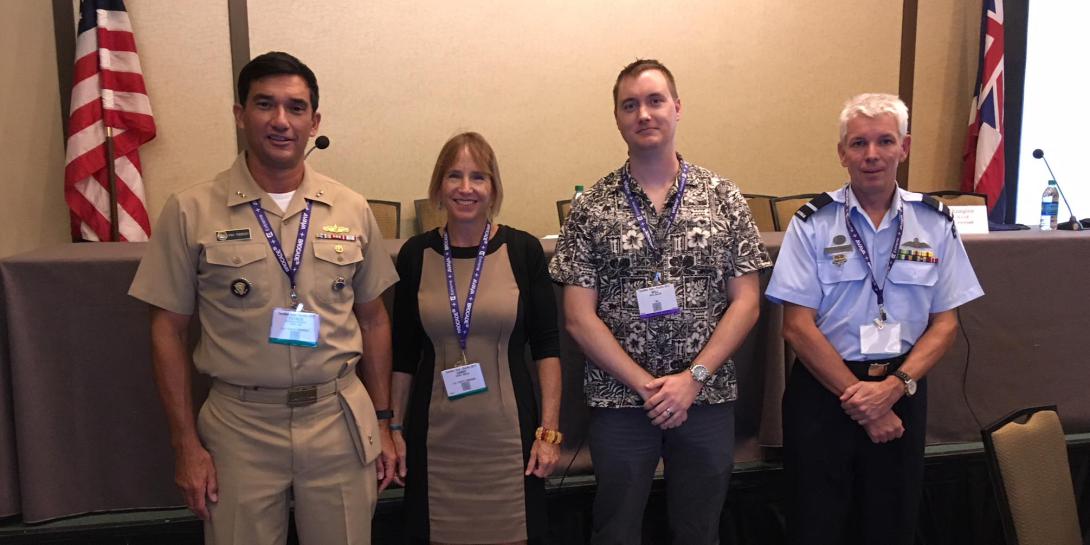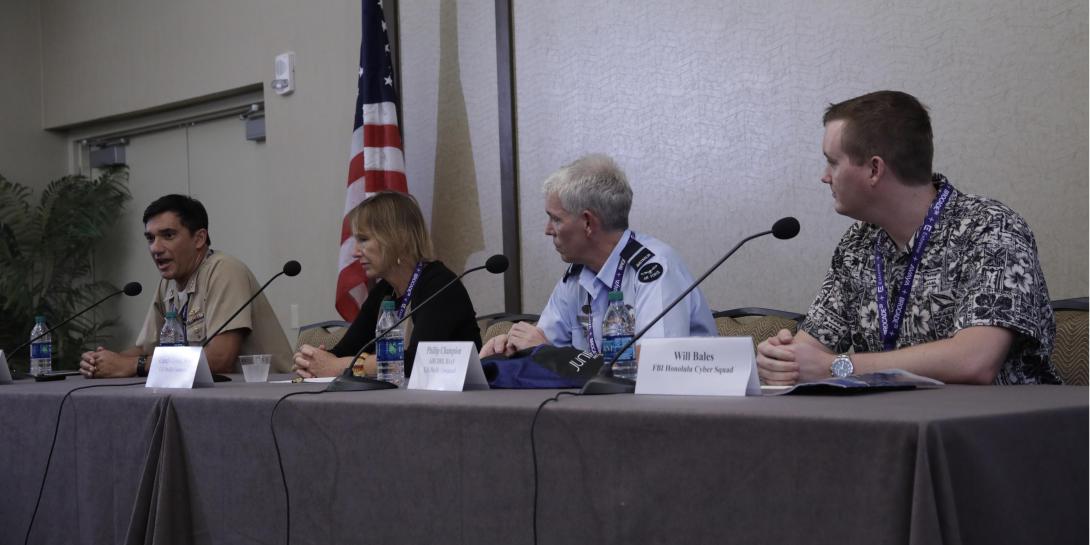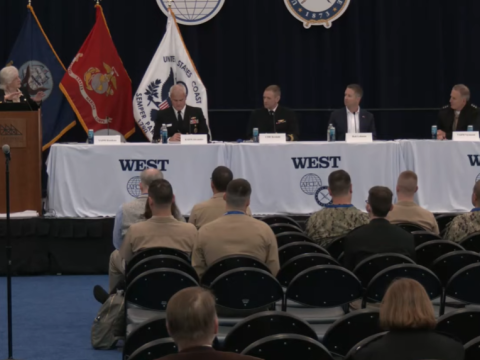Winning Through Cultural Advantage Still Possible
Information technology’s impact on our culture is far deeper and more profound than many realize. While the technologies we have at our fingertips make many things easier, they also blur the distinction between right and wrong, especially for younger generations.
Will Bates, supervisory special agent, FBI Honolulu Cyber Squad, stated that the age of cyber crime suspects keeps going down. “It is easy to conduct the intrusions, and often parents have not emphasized that accessing things online without authorization is also wrong. Bates joined three others on a panel that looked at cultural aspects of technological advances.
“We as humans are story tellers,” said Air Commodore Phillip Champion, RAAF, but we don’t own the narrative. Narratives pre-exist. “We can try to influence them depending on narrative opportunities, but people will pick and choose a narrative so they can make sense of their world,” he stressed.
“My generation grew up watching the broadcast of the 6 o’clock news," the air commodore stated. But today, information is narrowcasted, so people are picking and choosing based on what they have liked in the past. We need to think strategically to come up with a variety of solutions with allies.
We are living in iPhone generation with instant gratification and response and it is all about having “likes," which can influence behaviors, Air Commodore Phillip Champion explained.
Secrets are much harder to hide with so many people who consider themselves reporters if they have a cellphone, said Candy Green, foreign policy advisor to the commander, U.S Pacific Command. “This is good and supports transparency, and technology plays a role, but what isn’t good is that you have to know how to sift through data and know when to toss something into the junk heap that is not good information."
And while technology can replace many things, it cannot replace relationships. “Nothing can replace the value of face to face and careful cultivation of relationships over time,” Green reported. “Technology doesn’t yet know how to ask right questions. People have to do that, but technology can help us answer the questions,” she added.
You don’t protect your core values by changing them on a responsive attack. But there are tools available to government within democracy, including journalism and education, she said.
Disagreement exists on if there has been an attack on core values or not, stated panel moderator Rear Adm. Patrick Piercey, USN, director for operations, U.S. Pacific Command. Potential adversaries are matching us from a technical standpoint, but we still have the cultural advantage for now. So you have to invest in the cultural advantage. “One person’s evil is another person’s good," he stressed.
The insider threat is one of the hardest thing to combat against. Some who have gone through the protocols still have decided to go to the dark side. There are red flags, Rear Adm. Piercey said, “and we cannot be shy about being confrontational. If a flag does show up, it needs to be confronted by security.”




Comments